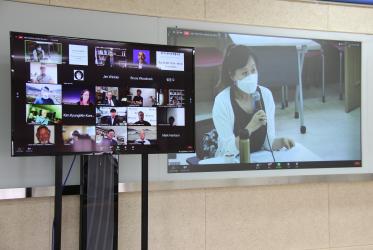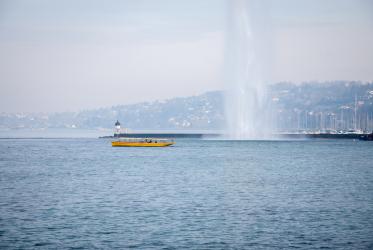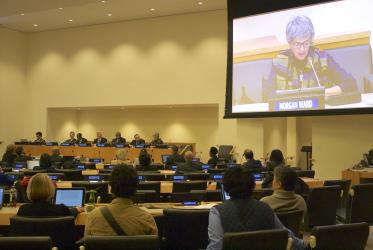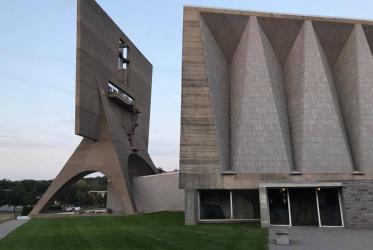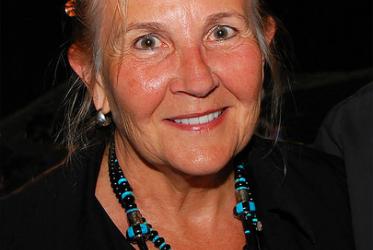Displaying 1 - 20 of 20
Tveit: Beyond national borders, we are one humanity
23 January 2018
Dozens of countries sign nuclear weapons ban treaty
20 September 2017
Tveit: search for unity “an urgent need today”
09 September 2017
“Children are the heroes of the aboriginal residential schools story”
25 September 2015
WCC encourages churches to pray on Hiroshima Day
06 August 2015
Indigenous faith leaders reflect on resilience and climate change
23 September 2014


